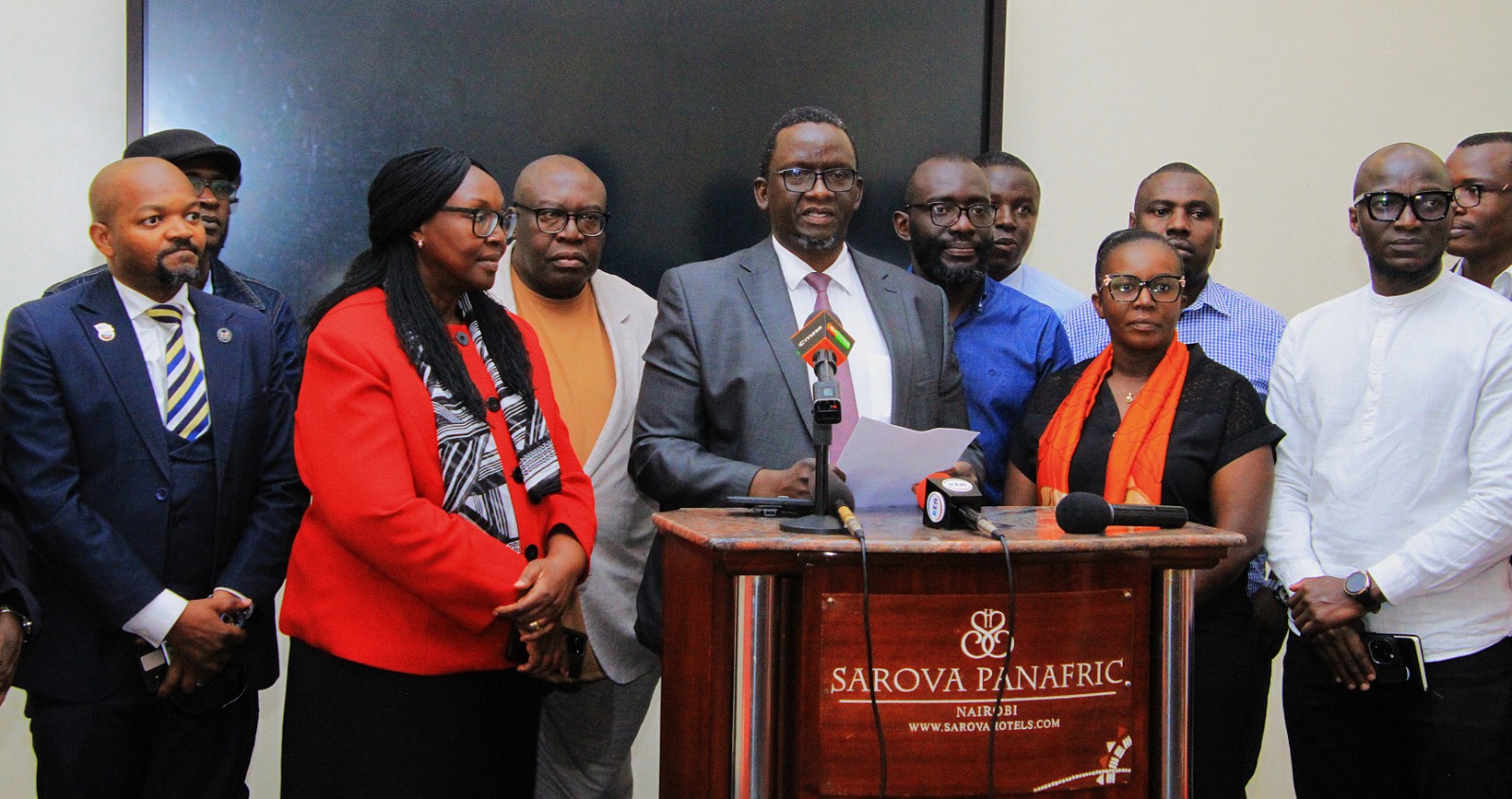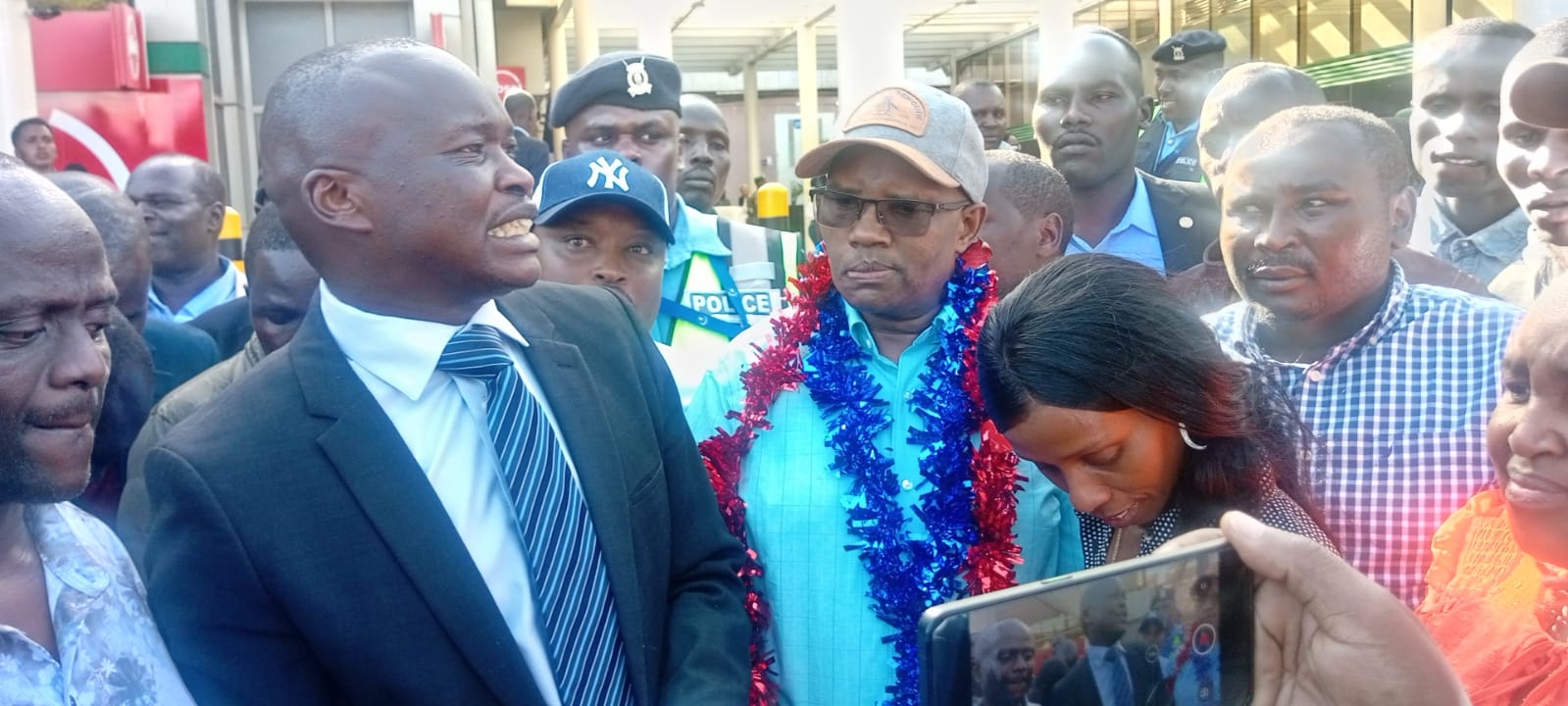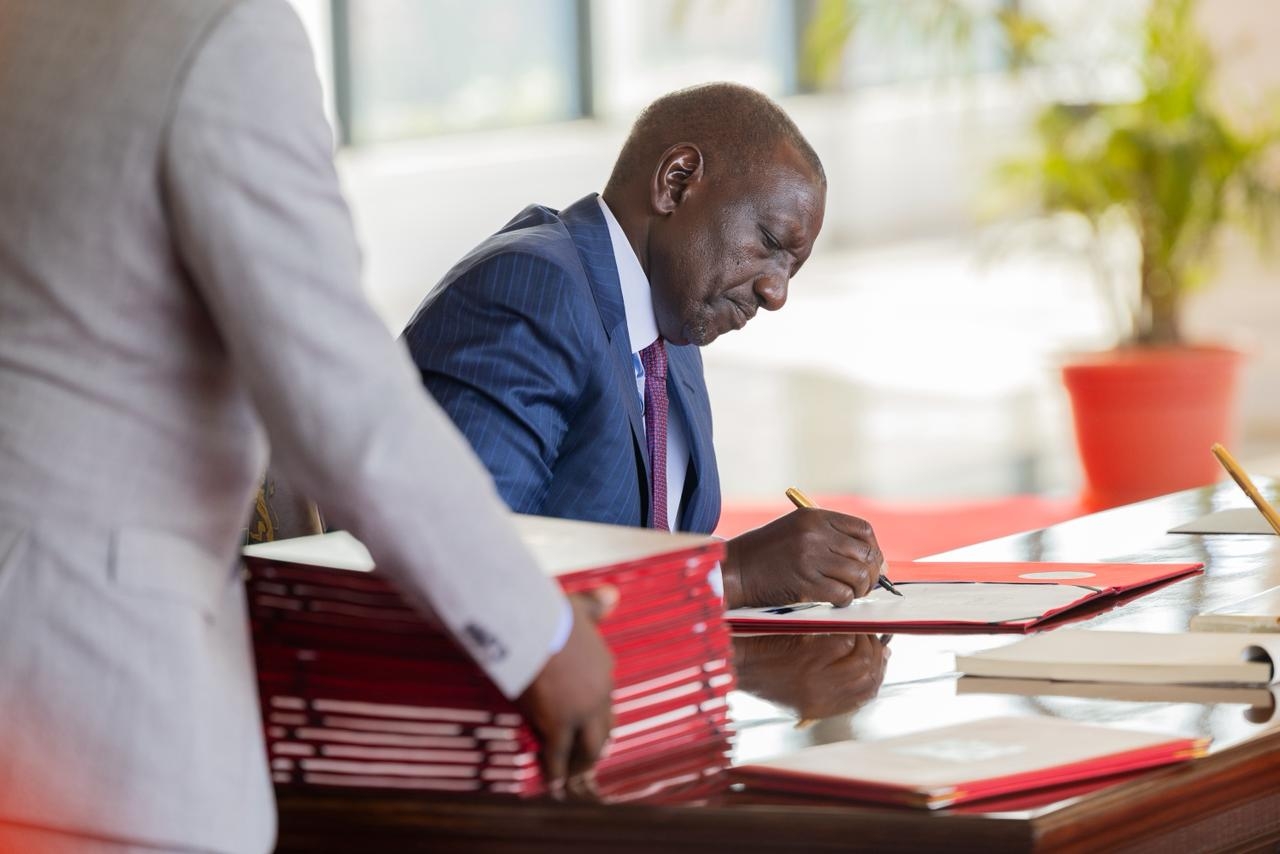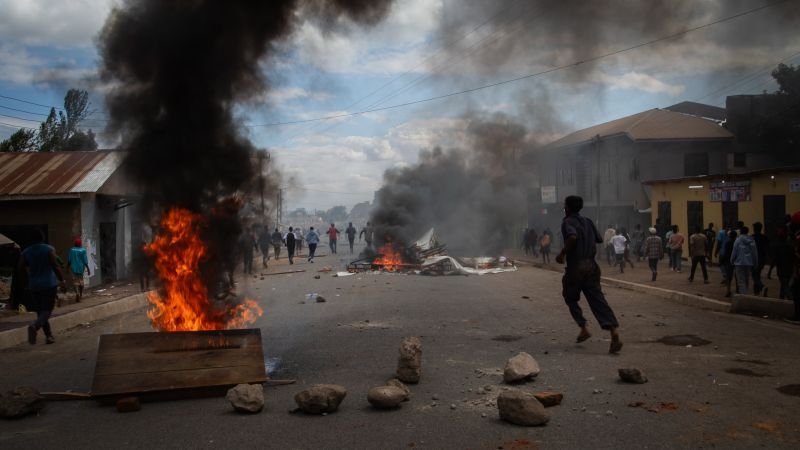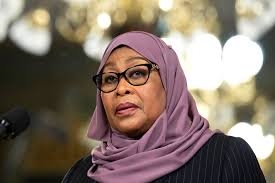Environment CS Aden Duale on Wednesday left for Ivory Coast to represent Kenya at the 10th Special Session of the African Ministerial Conference on the Environment.
AMCEN is a platform for African ministers to discuss and strategise on pressing environmental issues impacting the continent.
This year's session in Abidjan is particularly significant as it aims to address the growing challenges posed by climate change, deforestation and biodiversity loss.
It will also explore sustainable solutions tailored to the unique needs of African nations.
Kenya, known for her proactivity in climate action and environmental conservation, will share insights from its initiatives.
This includes the ambitious 15 billion National Tree Growing Programme that seeks to raise the country's tree cover to 30 per cent by the year 2032.
The meeting that started on August 30 and will end September 6, is being held under the theme “Raising Africa’s Ambition to Reduce Land Degradation, Desertification and Drought.”
The theme underscores the critical need to address the region's current state of land degradation and restore this vital resource.
The United Nations Environment Programme says an estimated 65 per cent of Africa's land is degraded, impacting over 400 million people.
The Intergovernmental Science-Policy Platform on Biodiversity and Ecosystem Services states that land degradation affects 3.2 billion people globally, most of whom are in developing countries.
Annually, approximately 4.4 million hectares of productive land are lost to desertification.
This reduces agricultural productivity and causes undernourishment for about 68.1 million people in Africa.
UNEP says desertification results in the loss of around 27,000 species each year and costs the global economy 10 per cent of its GDP annually.
Sub-Saharan Africa bears 22 per cent of the total global cost of land degradation.
Over 23 million people in the Horn of Africa and another 23.5 million in the Sahel are facing severe food insecurity due to drought and land degradation.
UNEP says given the serious challenges posed by land degradation, desertification and drought in Africa, the region must increase its efforts and ambitions to combat these issues.
“The 10th Special Session aims to raise the political profile of these issues to prioritise combatting and mitigating their threats. The session will renew commitments and raise ambitions among member states, partners and stakeholders," says UNEP.
"This is to enhance resilience to the effects of drought, land degradation and desertification and to increase investments to achieve these goals.”
The special session will focus on four policy areas that include strengthening efforts to mitigate droughts in Africa and raising ambitions to meet Africa’s land degradation neutrality targets.
Others are enhancing opportunities for ecosystem restoration and forging partnerships and synergies to enhance the implementation of agreed targets and resource mobilisation.
The outcomes of the session will be presented at the UNCCD COP16, the African Union processes including the Committee of African Heads of State and Government on Climate Change, and the Ordinary Session of the Assembly of the Heads of State and Government of the African Union in early 2025.
As the session gets underway, Greenpeace Africa has urged the African ministers to champion bold climate action and plastic reduction.
Hellen Dena, Pan African Plastics Lead at Greenpeace Africa, said plastic pollution and climate change are intertwined.
Forest Campaigner at Greenpeace Africa Stella Tchoukep said Africa is facing land degradation, climate change and in some regions desertification.
“These multiple crises have negative impacts on land productivity, biodiversity and ecosystems, and are caused by imported development policies," she said.
"These policies often perpetuate the colonial model of natural resource exploitation, with rural populations, Indigenous Peoples and other vulnerable people paying the highest price," Tchoukep added.
"As African ministers convene in Abidjan, they must prioritise solutions which integrate both protection of biodiversity and the respect of the rights of communities who through their presence have protected forest for generations.”
Pan African Political Strategist Fred Njehu said African ministers and policymakers have an opportunity to build political momentum with concrete solutions and outcomes going into the Conference of the Parties on Convention for Biodiversity 16 in Cali and the United Nations Convention on Climate Change COP 29 in Baku.
“Top on their priorities should be to deliberate on a new collective and quantified goal on finance that addresses climate loss and damage, mitigation and rising adaptation needs in Africa. This is in addition to crafting a roadmap to transition away from fossil fuels into renewable energy solutions.”









